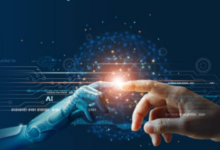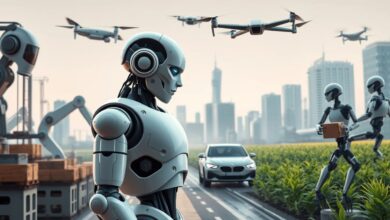
Machine learning, neural networks, and all related technologies will continue to impress humanity in 2025. AI has penetrated many sectors of life and work. The impact of this technology on society is gradually growing, and it will continue to increase in 2025.
If you are looking for professional ML implementation for your business niche, get in touch with advanced Python programmers for hire. And now, let’s see what progress the artificial intelligence industry achieved last year and try to predict what to expect in the near future.
Earlier diagnostics of disease in medicine
Machine learning provides an opportunity to support the analysis of big data, it especially vital in such areas as human health investigations. For example, the method of analyzing X-rays through AI is increasingly used in medicine. Machines can detect signs of disease at an early stage, which, in many cases, humans cannot do. The GP checks through dozens of X-rays a day, and since they are only human, concentration and attention wane, and essential findings may be missed or not be as precise as the machine analysis learned on thousands of examples.
Healthcare companies actively use predictive analytics and one-short learning to determine the likelihood of disease at the early stages of research. This technology will continue to develop, and the experts from different Medtech branches will have a more powerful arsenal of supportive diagnostic modules.
Speech Recognition
Speech recognition technologies have stepped far ahead of what they were just a couple of years ago. Now machines can simulate the speech of a person very realistically. It becomes challenging to recognize where a person speaks and where – a machine.
OpenAI’s chatbot, based on GPT-3.5, the most advanced language model ever created, has recently been released, consisting of about 175 billion “parameters” – variables and data points that machines can use to process the language. OpenAI is now working on a successor, GPT-4, which will be even more efficient. Although details have not been released, some suggest the model will contain up to 100 trillion parameters, making it 500 times larger than GPT-3.
Security
As all sorts of devices permeate our lives, hacking and cybercrime become a growing problem. Every device added to a network becomes a potential vulnerability that a hacker can. And as networks become more complex, finding these vulnerabilities becomes more difficult.
And that’s where AI comes in handy. It can analyze the traffic and learn to recognize malicious intent. Such algorithms help network security experts to protect companies and regular users.
Business
The shortage of skilled developers has now reached unprecedented heights. The worldwide deficit is estimated to be in the tens of percent – up to 40 percent in some industries.
In many cases, businesses, science, and the government cannot work efficiently without qualified developers. But in several cases, it is possible to use an alternative – no-code systems that allow ordinary users to develop services and applications. So far, the quality of such systems leaves much to be desired, but they are improving thanks to AI.
Artificial intelligence can translate various user actions into program code. By the way, speech recognition also finds its place in this niche. Natural language recognition and modeling technologies may make it possible to use only voice commands or interact with the interface to write services and programs.
Of course, this is still a long way off, but the zero-code reality is already somewhere around the corner.
Autopiloting
Long ago, it was only possible to imagine a car that would roll along public roads with human assistance. In science fiction, of course, a lot is said about it, but in real life, cases began to appear only recently.
According to Elon Musk, the number of accidents after the worldwide acceptance of autopiloting can be reduced by up to 50%. Tesla is making the most significant progress in this direction so far. But competitors are far behind. For example, Waymo (created by Google), Apple, GM, Ford, and several Chinese startups have advanced very far in making their autopilot systems.
Art
Writing articles and stories, creating musical compositions, paintings, and even video games using AI is probably not a distant reality. The first attempts in this direction are made now, and some are successful. In 2025, we will hear about breakthrough projects that have allowed machines to explore new areas for themselves.
In general, these are the significant advances we saw in the development of AI technology last year. And hope to see even more innovative solutions ahead. The AI technologies, working as a basement for the described above inventions, are well explained in the next post.







